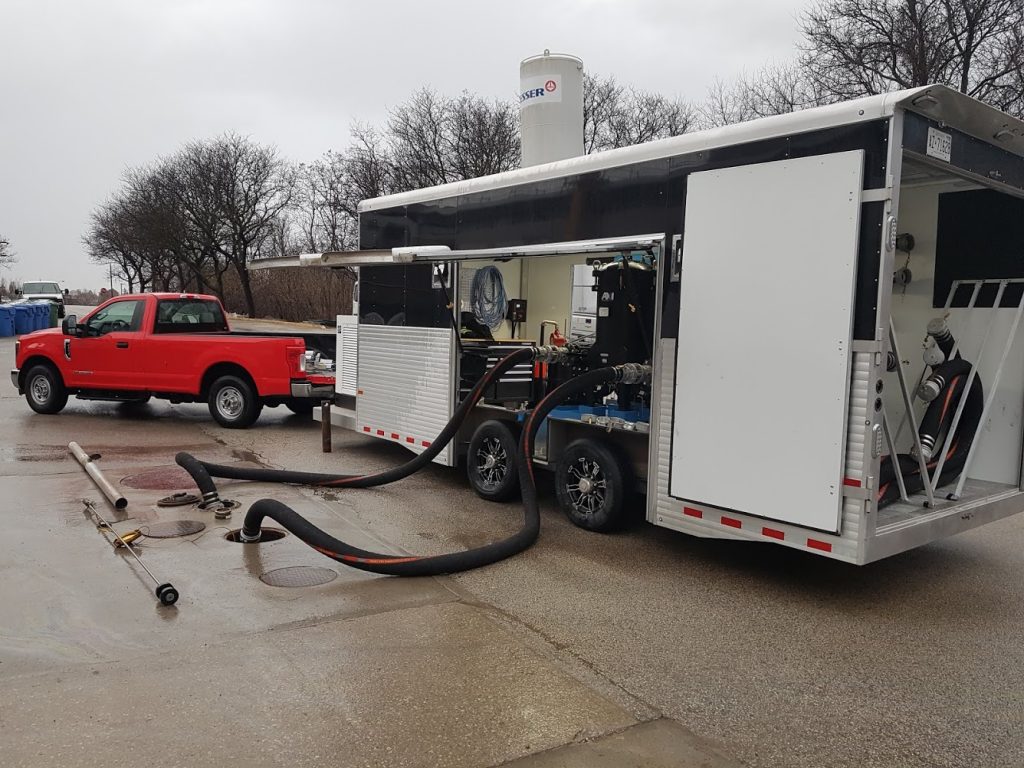In order to increase efficiency and performance of engines, the quality of fuel is a crucial factor. Diesel fuel can be contaminated in the course of time with sediment, water and Microbial growth. This can adversely affect the performance of engines and result in costly repairs. Polishing of fuel is an option to reduce the risk of contamination with fuel and help maintain the smooth running of engines.

Polishing of fuel, also referred to as diesel fuel polishing is a process of removing contaminants and impurities from diesel fuel. Polishing fuel is a service that is performed by experts using the latest technology and equipment to bring fuel to its original form. Polishing the fuel improves engine performance and lowers maintenance costs through the elimination of harmful substances.
Numerous polishing services for fuel are offered to meet the various needs of industries that rely on diesel fuel. These companies employ highly-trained technicians who have expertise in fuel systems and are aware of the complexity of contamination in fuel. They have a deep understanding of the subject and equipment that is specialized they are able to identify issues related to fuel and use the proper techniques to polish fuel.
Fuel polishing has as its principal goal elimination of sediments, water, sludge, and microorganisms from diesel fuel. Due to condensation and leakage in fuel tanks the water may build up creating corrosion and degradation of fuel. Additionally, it encourages the development of fungi, bacteria, as well as other microorganisms. Sludge or sediment could be caused by impurities within the fuel, or gradual degradation of fuel components. These substances can block the injectors and filters as as other essential components. This can result in an impairment in the performance of engines or even breakdown.
Diesel polishing typically involves a multi-step process. Analysis and sampling of fuel is the first step taken to identify the degree of contamination. Following the analysis, technicians use filtration systems in order to remove impurities, contaminants and other pollutants from the fuel. They employ a variety of filters and media to efficiently capture and remove fuel-borne contaminants.
Regular fuel polishing offers several key benefits. Firstly, fuel polishing improves the quality of fuel, which assures that engines get clean, regular fuel, allowing the fuel to burn effectively. This is, in turn, increases the efficiency of fuel and performance and leads to savings in costs and lower emissions. Polishing the fuel also decreases the possibility of engine breakdowns and damages caused by contaminated gasoline. It helps to maintain the durability and integrity of engine components by removing harmful substances.
Regular polishing of diesel fuel (also called polishing using diesel) can provide many advantages in maintaining fuel quality. It helps firstly get rid of sediment, water, and microbial contaminants that affect the performance of engines. The fuel quality improves significantly because of the removal of these impurities via the polishing process used in diesel. This in turn improves combustion efficiency and reduces emissions. In addition, regular polishing of the diesel reduces the risk of engine damage due to clogging injectors, fuel filters and other crucial components. The process of polishing fuel is crucial to prolong the life of the fuel storage system because it helps to reduce the buildup of sludge and corrosion, and other contaminants. Regular polishing of diesel fuel has a variety of advantages, including better efficiency of the engine, lower costs as well as increased reliability.
Fuel polishing can also be modified to meet the requirements of different industries and application. Polishing the fuel is applicable to a range of applications, ranging from boats and backup engines, to construction machines and transportation fleets. It is particularly crucial for businesses that depend on a reliable and uninterrupted power supply, and those operating in remote or hostile environments in which the quality of fuel may be compromised.
In summary, polishing the fuel, is an important procedure to ensure the quality and purity of diesel fuel. It improves engine performance, lowers maintenance costs and increases the life of equipment by removing contamination and impurities. When investing in professional fuel polishing, industries can secure their operations, boost performance and lessen the risk of fuel contamination. Polishing the fuel can unleash the potential of diesel fuel that will help you drive your business ahead.